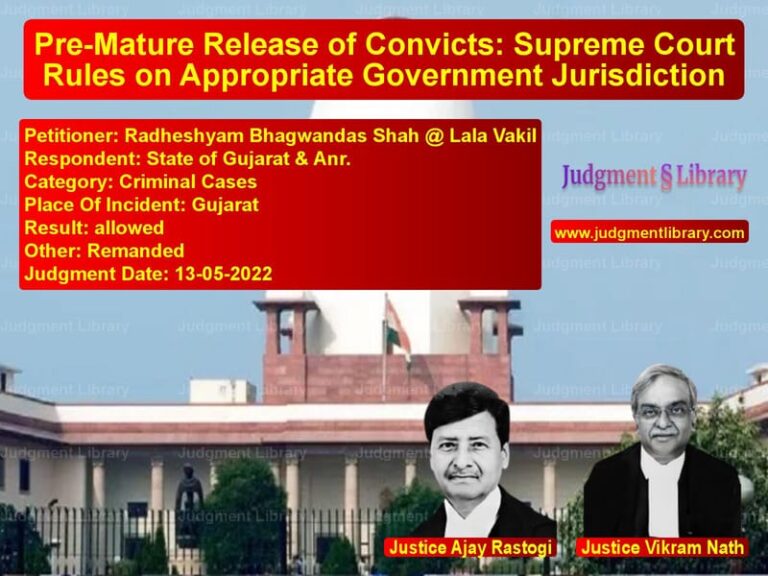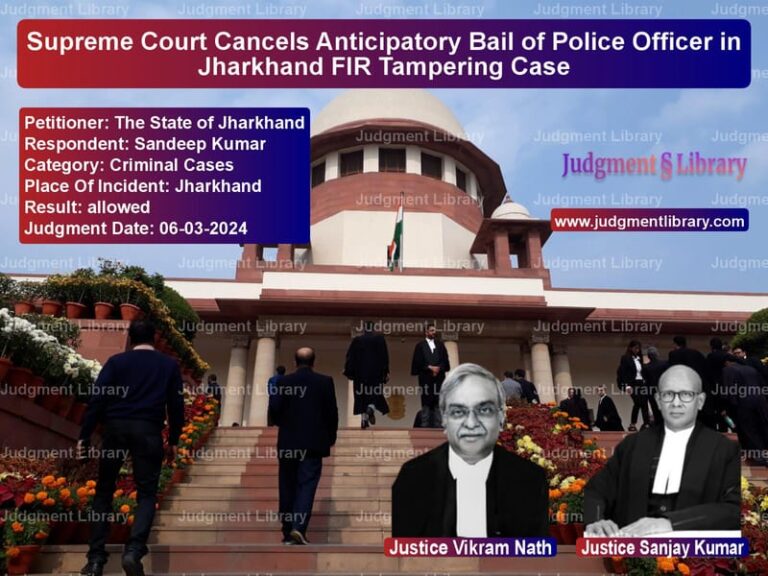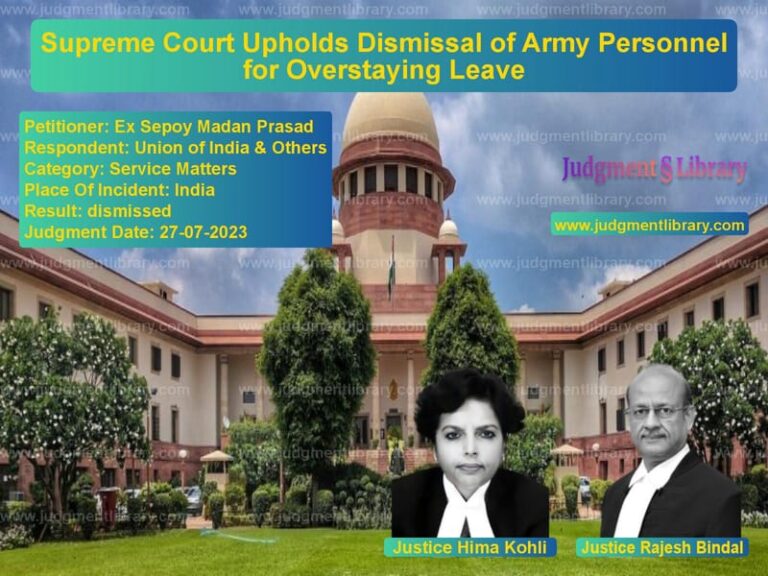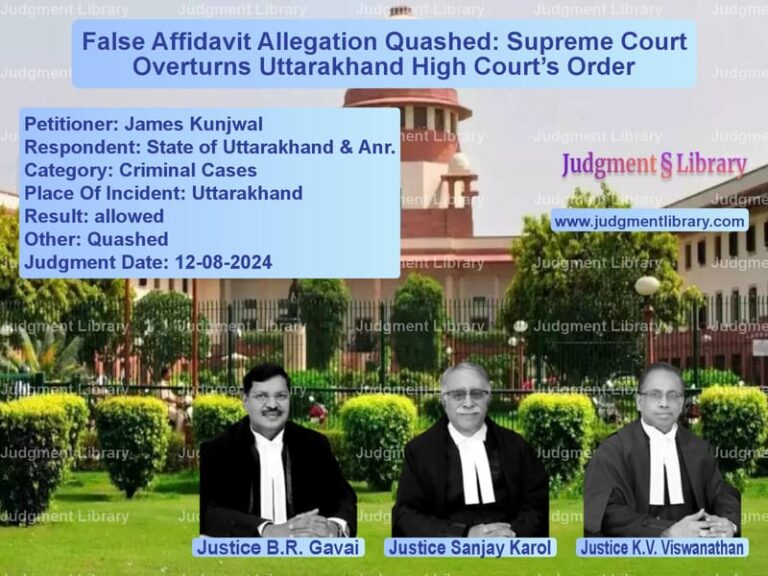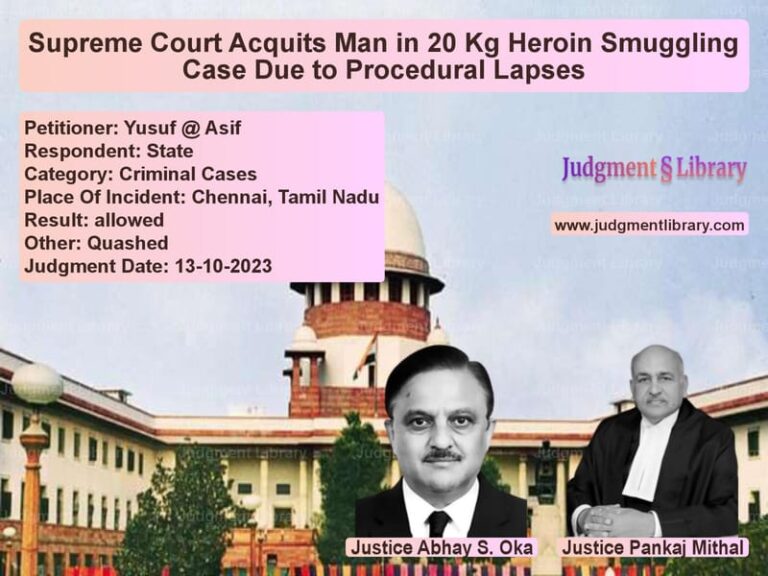Supreme Court Directs Guidelines for Media Briefings on Criminal Investigations
The Supreme Court of India recently delivered a significant judgment addressing the procedure for police media briefings in criminal investigations. The case, People’s Union for Civil Liberties & Anr vs. The State of Maharashtra & Ors, raised concerns about the impact of media coverage on ongoing investigations and the rights of accused persons. The judgment mandates the Union Ministry of Home Affairs (MHA) to prepare a comprehensive manual outlining the dos and don’ts for police personnel while engaging with the media.
Background of the Case
The case originated from concerns over two primary issues:
- The procedure for investigating police encounters.
- The modalities to be followed by police personnel when conducting media briefings during an ongoing criminal investigation.
The Supreme Court had already addressed the issue of police encounters in a 2014 judgment (People’s Union for Civil Liberties v. State of Maharashtra), leaving the question of media briefings as the focal point of the present judgment.
Arguments by the Petitioners
The petitioners, People’s Union for Civil Liberties (PUCL), contended that unrestricted police briefings to the media during criminal investigations led to the following problems:
- Unverified statements by police officers often influenced public opinion against accused persons before the conclusion of investigations or trials.
- Media trials fueled by premature disclosure of information often violated the fundamental right to a fair trial and the presumption of innocence under Article 21 of the Constitution.
- Overexposure of victims, particularly in cases of sexual offenses and juvenile crimes, led to privacy violations and psychological harm.
- The release of sensitive information about witnesses and ongoing investigations could compromise law enforcement efforts and national security.
Arguments by the Respondents
The State of Maharashtra and other respondents defended media briefings as an essential component of public accountability. Their arguments included:
- The media had a fundamental right to free speech and expression under Article 19(1)(a), which included access to law enforcement information.
- Public dissemination of crime-related information served a legitimate public interest, keeping citizens informed about police actions.
- Well-regulated media interactions ensured transparency in criminal investigations and countered misinformation.
Supreme Court’s Analysis
The Supreme Court acknowledged the conflict between the right to free speech and the right to a fair trial. It emphasized that while media freedom is crucial, unregulated disclosures by police personnel can undermine due process. The Court made the following observations:
- Criminal investigations are delicate processes that must not be prejudiced by media sensationalism.
- Accused individuals must not be subjected to a public trial before legal proceedings are completed.
- Victims, particularly minors and survivors of gender-based violence, must be protected from undue public scrutiny.
- Law enforcement authorities must ensure that media briefings do not compromise national security, investigative integrity, or judicial independence.
Judgment and Directions
The Supreme Court directed the Union Ministry of Home Affairs to draft detailed guidelines for media briefings by police personnel. The key elements to be included in the guidelines are:
- Each police district must have a designated Media Briefing Cell (MBC) to handle all media interactions.
- Only authorized senior police officers should conduct media briefings.
- Press releases should be in written form, preventing police officers from making off-the-cuff statements.
- The nature and timing of disclosures must be carefully regulated to prevent misinformation and bias.
- The identity of victims in sexual offenses, juveniles, and other vulnerable persons must not be disclosed.
- Media disclosures must avoid pre-judging an accused person’s guilt.
- The police must maintain official records of all press briefings.
- Strict disciplinary action should be taken against officers who violate media briefing protocols.
Implications of the Judgment
This ruling has profound implications for media practices and police accountability:
- It ensures that law enforcement agencies follow a uniform policy while interacting with the media.
- It protects the rights of the accused, preventing undue prejudice before trials.
- It safeguards victims’ privacy, ensuring their dignity is maintained.
- It promotes responsible journalism, discouraging trial by media and sensationalism.
Conclusion
The Supreme Court has taken a crucial step in balancing media freedom with the principles of fair trial and privacy. The mandatory guidelines, once implemented, will set a precedent for structured police-media relations, ensuring that criminal investigations are conducted without bias or external influence. By requiring law enforcement agencies to adopt a disciplined and transparent approach to media briefings, the judgment reinforces the rule of law and upholds constitutional rights.
Petitioner Name: People’s Union for Civil Liberties.Respondent Name: The State of Maharashtra and Others.Judgment By: Justice Dhananjaya Y Chandrachud, Justice Pamidighantam Sri Narasimha, Justice Manoj Misra.Place Of Incident: Maharashtra.Judgment Date: 13-09-2023.
Don’t miss out on the full details! Download the complete judgment in PDF format below and gain valuable insights instantly!
Download Judgment: people’s-union-for-c-vs-the-state-of-maharas-supreme-court-of-india-judgment-dated-13-09-2023.pdf
Directly Download Judgment: Directly download this Judgment
See all petitions in Custodial Deaths and Police Misconduct
See all petitions in Legal Malpractice
See all petitions in Contempt Of Court cases
See all petitions in Judgment by Dhananjaya Y Chandrachud
See all petitions in Judgment by P.S. Narasimha
See all petitions in Judgment by Manoj Misra
See all petitions in allowed
See all petitions in supreme court of India judgments September 2023
See all petitions in 2023 judgments
See all posts in Criminal Cases Category
See all allowed petitions in Criminal Cases Category
See all Dismissed petitions in Criminal Cases Category
See all partially allowed petitions in Criminal Cases Category


